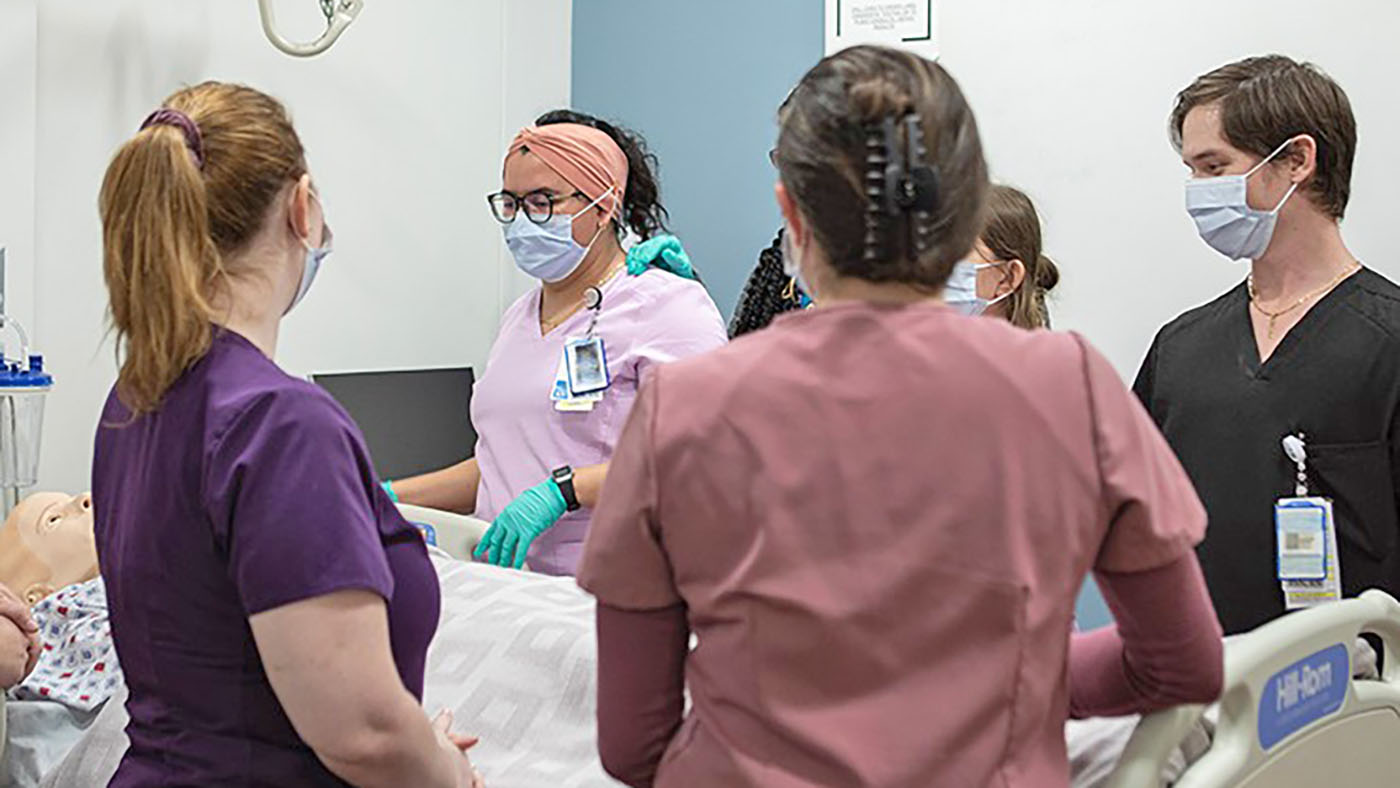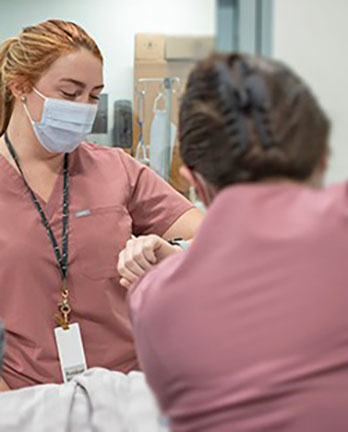VA’s National Telestroke Program (NTSP) provides acute stroke care to Veterans at VA facilities that do not have a neurologist available. Using telehealth technologies, a neurologist from the NTSP center can evaluate patients and provide a treatment plan for the on-site staff to complete.
With machines humming and equipment beeping, the simulation lab seemed just like a hospital room. Nurse residents like Wade Parker at West Palm Beach VA gathered around the live practice patient. Parker felt nervous but excited knowing the training they were about to receive could one day save lives.
According to the American Stroke Association, strokes are the fifth cause of death and leading cause of disability in the United States. When a stroke happens, time is essential to the health of the patient. That’s where Telestroke training comes into play.
Ensuring all Veterans have expert acute stroke care all year round
“The NTSP provides VA facilities with 24-hour, seven-days-a-week stroke neurology services using telehealth technologies to ensure all Veterans have access to expert acute stroke care all year round,” said Dr. Jane Anderson, director of Program Development and Evaluation for the NTSP.
The benefit of having on-site care prevents unnecessary hospital transfers and increases care efficiency for the Veteran. Anderson noted results from VA facilities who participated in the program since 2018, saying the training “created confidence, instilled motivation and improved communication while using tele-technology.”
For Parker, who has been with VA in a residency program, seeing the stroke simulation and training provided a good understanding of how the process works when a patient shows signs of a stroke.
“Strokes are very serious and time sensitive. Getting to see what goes on and happens during the code stroke was very informative and made me feel more confident about caring for a stroke patient,” Parker said.
NTSP Stroke Coordinator nurse Jill Stouffer led the training at West Palm Beach VA after a request for a mock simulation for the nurse residency program. Stouffer thought this was a great idea because nursing students do not usually get the opportunity to use Telestroke in clinicals.
“Teamwork was outstanding”
Stouffer thought the simulation went well due to the collaborative effort and teamwork.
“I was very impressed. I feel they were at ease and the teamwork was outstanding,” Stouffer said.
For Education Coordinator Dr. Christin Protesto, the importance of Telestroke simulation training is a necessity and is especially important for new graduate RN residents. “Many of our on-site providers and nurses have not yet witnessed the VA National Telestroke service or collaborated in a live telehealth assessment. Not only is simulating how to respond and properly assess a patient when a stroke is suspected important to learn, but simulating remote collaboration is also an important skill to learn,” Protesto said.
Parker is grateful knowing the training will help provide stroke victims the best possible outcome and that they can continue to live a healthy life. “It was good to know we will always have the help of the Telestroke hotline to guide us and keep the patients safe,” he said.
VA is a national leader in health professions education, setting the standard for physicians and health professions training in more than 60 professions with more than 1,500 educational institution affiliates to train future health professionals.
These academic affiliations—some of which began more than 78 years ago—are coordinated by VA’s Office of Academic Affiliations (OAA). Find out more about VA’s academic mission.
Topics in this story
More Stories
Study underscores important role COVID vaccination can have in protecting Veterans from infection and reducing long-term health consequences
Columbia VA’s robotic surgery teams completed their 800th robotic surgery and are on schedule to hit 1,000 by the end of the year.
In a decentralized clinical trial, Veterans can participate from their own homes or local VA instead of having to travel to a research site.







